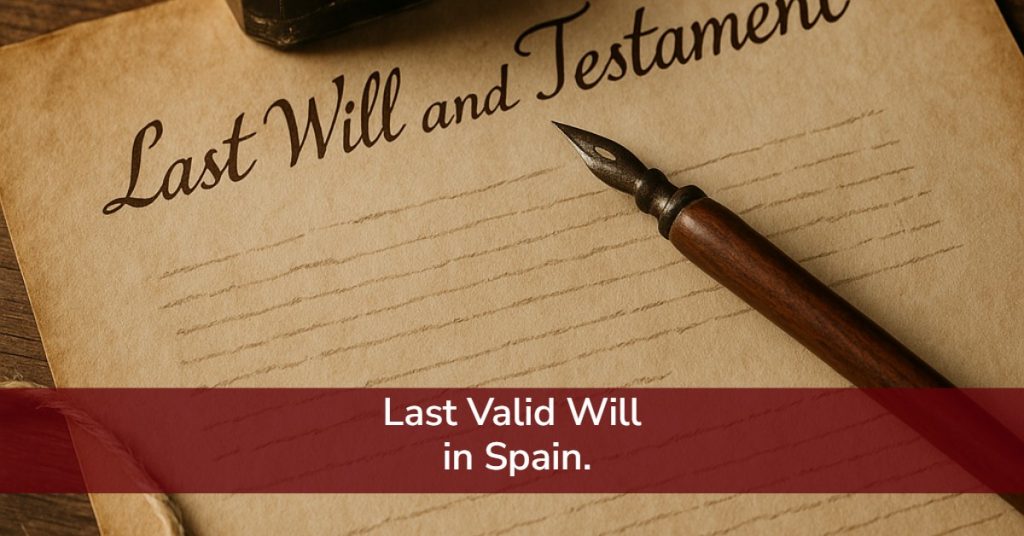When someone passes away, one of the essential steps for heirs and family members is to verify whether the deceased left a Will and before which Notary Public the last valid will was executed. In Spain, this information is managed through the Registry of Wills. Established by Royal Decree in 1885 and operational since 1886, this Registry allows the location of wills executed in Spain before a notary. In certain cases, it also includes wills executed abroad, provided they have been duly registered in this Registry.
Spain’s Registry of Wills.
The Certificate of Last Will, issued by the Registry of Wills, provides very specific information. In particular:
.- Whether the deceased executed a will or not.
.- If so, the date it was executed and before which Notary Public it was granted.
Additionally, it contains a complete history of all Wills executed by that person, indicating the dates and the locations where each one of them was signed. Only the last will executed is legally valid. It is important to note that this certificate does not detail the content of the wills. Due to Data Protection Regulations, access to the Will’s content is restricted exclusively to heirs or legatees. To review the contents of the Will, these individuals must apply directly to the corresponding Notary Public, where the original document is held.
Documentation required to request the Certificate of Last Valid Will.
In Spain, any person may request this certificate. To do so, it is sufficient to provide a copy of the death certificate and a series of details about the deceased: parents’ names, date and place of birth, marital status, etc.
The Certificate of Last Wills can only be requested once 15 working days have passed since the death. Unlike in other countries, where access may be more complex—for instance, in Austria, where there are separate registers for Notaries and Lawyers, and access is not public—in Spain the procedure is relatively straightforward.
What happens when the deceased granted multiple Wills?.
A problematic situation arises when multiple wills exist in different countries. To determine which one prevails, it is necessary to check for express revocations. To verify whether one Will applies only in Spain while another may extend worldwide. And to identify any contradictions in the provisions. Sometimes, the wording of the wills can be unclear, raising doubts about the interpretation of certain clauses. Being aware of and addressing these situations in advance allows testators to ensure that their intentions are clear. This helps prevent conflicts among heirs, disputes, or significant delays in the succession process.
Conclusion.
At White Baos Lawyers, as experts in succession law, private international law, and contentious inheritances, we understand that proper planning is essential. Having a clear will—or several, if dealing with different countries—can help prevent conflicts among heirs, delays, and higher costs in the future. If you need assistance with processing an inheritance, locating the last valid will, or drafting your will, our legal team is at your disposal. Do not hesitate to contact us.
The information provided in this article is not intended to be legal advice but merely conveys information relating to legal issues.
Carlos Baos (Lawyer)
White & Baos.
Tel: +34 966 426 185
E-mail: info@white-baos.com
White & Baos 2025 – All Rights Reserved.
